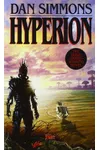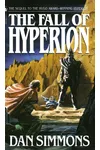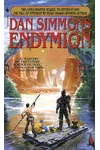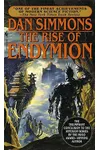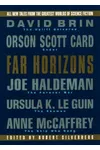Step into the cosmic odyssey of the Hyperion Cantos, Dan Simmons’ dazzling science fiction saga that whisks readers to a far-future universe teeming with mystery, danger, and wonder. This isn’t just a story—it’s a pilgrimage across galaxies, where the enigmatic planet Hyperion and its time-bending Shrike await to unravel humanity’s fate. Ready to explore a series that blends epic storytelling with profound questions about life, faith, and destiny?
With its intricate world-building and unforgettable characters, the Hyperion Cantos invites you to ponder the big stuff—while keeping you glued to the edge of your seat. Let’s dive into the origins, books, and lasting allure of this sci-fi masterpiece.
How Hyperion Cantos Began
In the late 1980s, Dan Simmons, a former teacher with a knack for blending genres, set out to craft a science fiction epic inspired by John Keats’ poetry and Geoffrey Chaucer’s Canterbury Tales. The result was Hyperion, the first book, published in 1989. Simmons envisioned a universe where humanity’s sprawl across the stars faces existential threats, weaving cosmic stakes with deeply personal stories. His ambition? To create a narrative as vast as the galaxy itself, rich with literary depth and philosophical musings.
The Heart of Hyperion Cantos
The series spans four main books: Hyperion (1989), The Fall of Hyperion (1990), Endymion (1996), and The Rise of Endymion (1997). Hyperion introduces seven pilgrims journeying to the planet Hyperion, each sharing their tale as they face the Shrike—a time-manipulating, blade-wielding entity. The Fall of Hyperion escalates into a galactic war, unraveling the mysteries of the TechnoCore, an AI collective with its own agenda. Endymion and The Rise of Endymion shift centuries later, following Raul Endymion and Aenea, a messianic figure, as they navigate love, sacrifice, and cosmic upheaval.
Themes of faith, technology, and humanity’s place in the universe pulse through the series. Simmons’ prose dances between poetic and visceral, painting a universe where faster-than-light travel, AI overlords, and time paradoxes coexist with raw human emotion. The Shrike, both protector and destroyer, embodies the series’ exploration of fate versus free will, while the pilgrimage structure mirrors spiritual quests. Hyperion’s blend of hard sci-fi, mythology, and literary references makes it a unique, immersive ride.
Why Hyperion Cantos Resonates
The Hyperion Cantos isn’t just a sci-fi classic—it’s a cultural touchstone that’s inspired fans, writers, and even game developers. Its ambitious scope and emotional depth earned it accolades, including the Hugo Award for Hyperion. Readers cherish its ability to balance heady ideas with heart-pounding action, making it a gateway to sci-fi for some and a pinnacle for others. Decades later, its questions about AI, religion, and survival feel eerily prescient, cementing its place as a timeless saga.
- About Hyperion Cantos
- Publication Years: 1989–1997
- Number of Books: 4
- Notable Award: Hugo Award for Hyperion (1990)
- Author: Dan Simmons
Ready to embark on a galactic journey? Grab Hyperion and dive into the Hyperion Cantos’ thrilling, thought-provoking universe. Your pilgrimage awaits!
